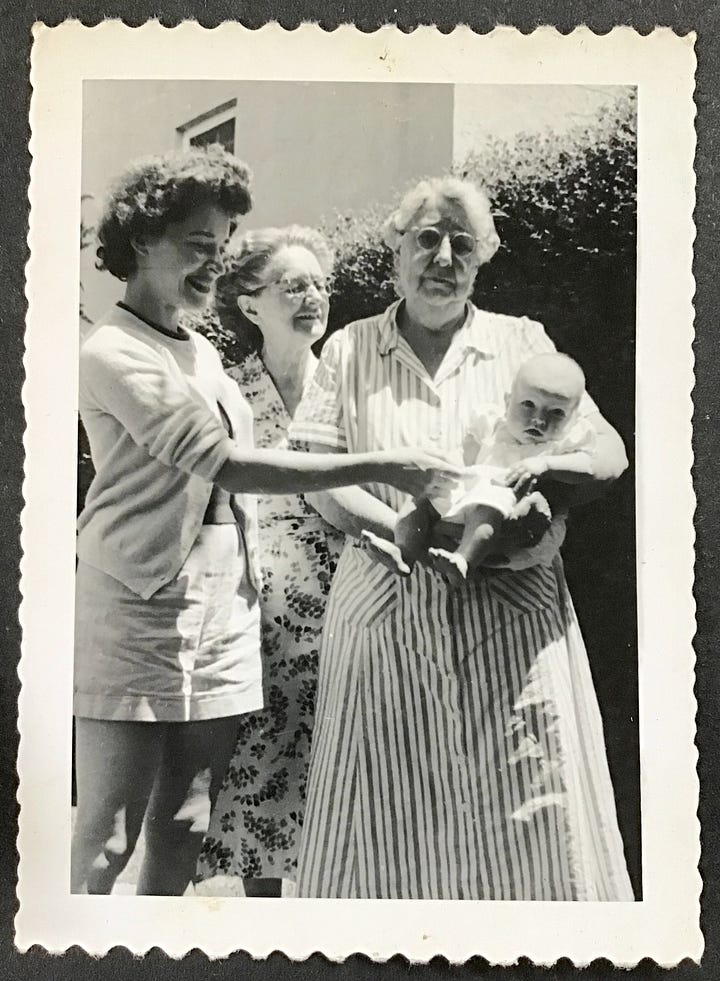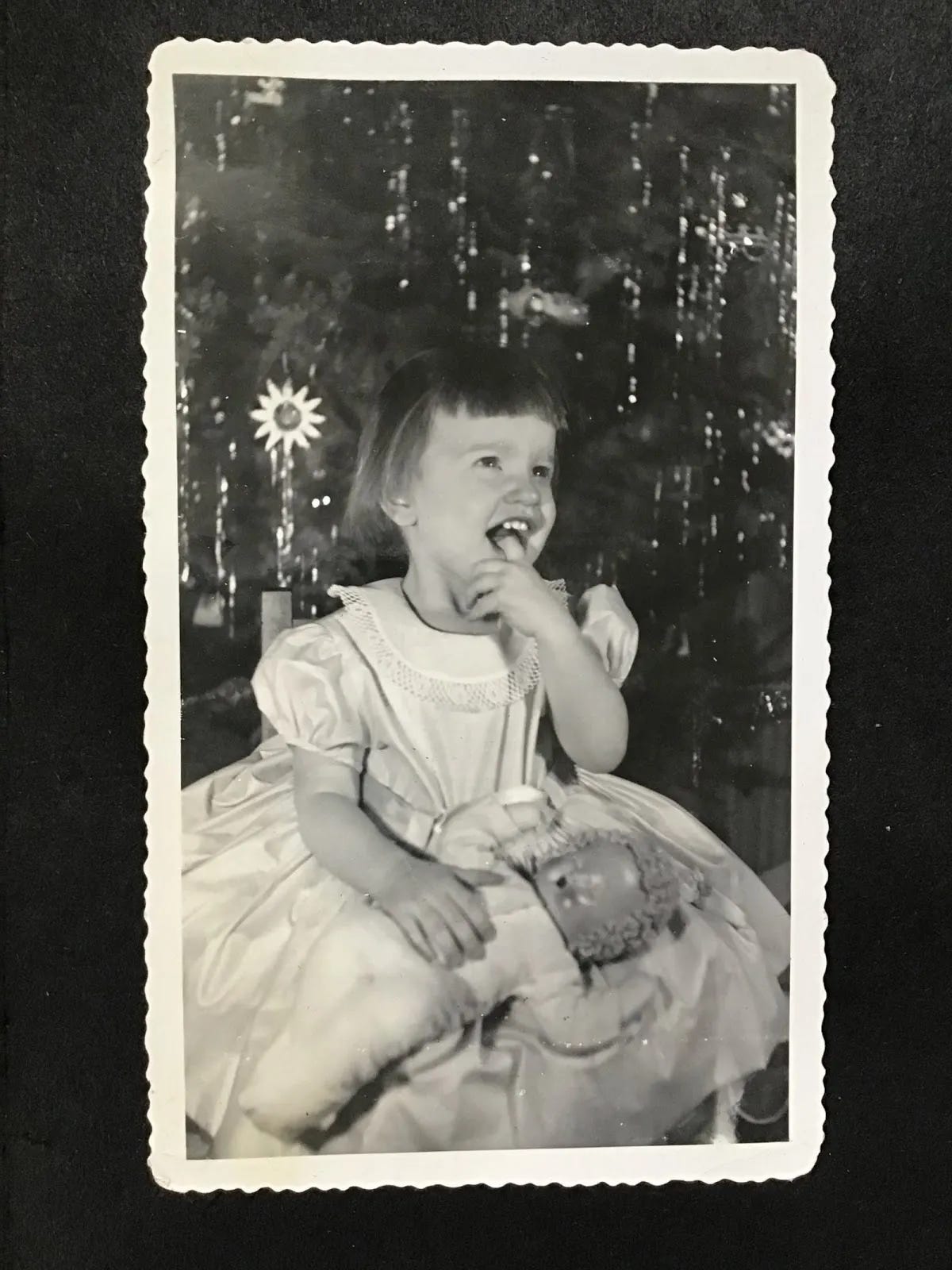This is where Nick and Kara are writing their book, A Suitable Vessel For Magic. Becoming a paid subscriber helps the entire enterprise. And it’s cheap!
“This is not the Hamptons,” you often remind me with great disdain.You are most definitely against having any kind of a beach house, even though you can hear the ocean waves from your porch. You are against anything that resembles what the summer people do with their matching marble kitchen islands, bright open spaces, nautical goo gahs, and raffia carpets. I find out later Nick that you are even adamantly against the color blue.
You can find all of our previous chapters HERE:
Right before our interviews begin, there’s an afternoon where we are alone in your tidy living room on Pleasant Lane. It is more like a grandmother’s parlor in which it is obvious that no-one ever really sits. I make fun of the heavy, velvet curtains with elaborate silk tie-backs, and the mahogany Victorian furniture. Remember? No television, no stereo, no place to rest one’s feet - one can only perch. The pink flowered settee has to be seen to be believed, or sat on. There is a thick plywood board underneath the cushions that keeps one from falling too low, but the plywood makes it impossible to sit in any other way than bolt upright, otherwise you slide off.
We are having a sort of important moment on that pink couch, Nicholas. You pull out a stash of early of black and white photos, culled from your stacks of albums in the attic. They are tucked in a plain envelope, and you present them to me one by one. The first one is a smiling girl in a white dress under a Christmas tree, another of a girl with her cat and a bowl on her head, and one where she is sitting on father’s shoulders at the beach. Of course I recognize you, but I don’t know how my face should look at that moment.
Years ago I heard rumors in AA that you were the one who had a sex change. But how could I know what that meant? I had no idea that it could take twenty years to fully transition, or that one had to go through their entire puberty all over again as the opposite sex. I hadn’t known you in your awkward phase where you still looked like a Jennifer and you were rehearsing your new lower register voice, how to cross your legs, what pants were a ‘Yes’, and what shirts and socks were a definite ‘No.’ I met you when you were dressing and talking and acting as impeccably, if not stilted, as a male.
I only remembered when I saw you up-close enough to examine your features that there might be something off - I hate using that word, but it’s what I felt at the time - something wax-like about you. Facial features that were just a bit too slight, too pinched, too perfect and delicate. I suspect now that the wax-like impression had something to do with you not being able to unwrap yourself fully into the new role.
So, now that I know you as a man, it’s a surprise when you hand me pictures of you as a girl, but it might be partly for your benefit - do you see? In that moment that you choose to reveal yourself to me I can’t explain that I might have already been told.
“But - you were?” I think that’s what I managed to say.
“Oh, you didn’t know? I thought everyone knew,” you say nonchalantly. “It’s not a secret.”
In the next two photos a newborn Jennifer is held by each woman in turn with the great hedge in the yard of Gram’s house in the background. Your young mother wears lipstick and shows beautiful legs in shorts, then your great-grandmother, Gram, who always looks uncomfortable and grumpy, and finally your grandmother, Grammy Klem, her daughter-in-law. They are at least twenty years apart in age, but in their slack house dresses they look like sisters. I say how sad that the grannies weren’t ‘lookers’ like your slender and pretty mother.
“That’s how women used to look! They didn’t do yoga, or eat organic, or wear makeup. That’s how grandmothers were supposed to look,” you say protectively.


You are elated today because the photos are evidence. There is an alternative plot line running parallel to the old story you have been turning over for your entire life. It isn’t that your victim story isn’t valid- that your father hadn’t abused you physically and mentally, or that he hadn’t left, or that your mother hadn’t enabled him, or that you weren’t exceptionally poor - it’s just that you have seen a crack in the narrative. Another story available to you that you have failed to notice up until then.
There are these extraordinary older women from the very beginning who have been taking care of you, and loving you throughout your entire life. I wonder if it is an accident that after you recognize and feel that love, that you are able to accept mine?
Within the week we are sitting side by side on another despicable floral couch in my room on Copeces Lane. How strange that we meet at night for our interviews, but nights in January do begin around 4:00, PM. My house at the end of the driveway is an eighties monster that really belongs in Miami. It takes no account of freezing winters, with a flat, leaky roof, white stained siding on wood planks, warped and slightly green. It has a double-height living room with white tiled floors and walls of glass that costs a fortune to heat in the winter, and an exploding boiler that floods the basement in the middle of the night. We call it The Hamptons Ghetto. A stoned yogi couple live upstairs, and I am one of two grown women who rent rooms downstairs, all of us together in a house in East Hampton in the only way we can manage to afford it.
The interview Continues…
After a bit of a power struggle at the opening I ask you: “What do you remember as your first fascinations with transformation?”
“Well that's a good question,” you say, with satisfaction.
“I know!” I shout, taking back an inch of authority.
“You finally hit on an interesting one. Where were you born and all that crap is not interesting,” you say.
Note taken. “Now,” I begin, “the first big change in your life was from alcoholic -”
“From drunk to sober,” you correct me firmly. “I got sober at 28.”
“So, at 28 you had the first radical transformation - sobriety - which is still going on. And then 12 years later, within AA, you start the second radical transformation, which was your change of gender.”
“It's been twenty years now. I am definitely due for the next one!” you say.
“But you already had a third one,” I say. But you wave me away.“Yes!” I insist. “Finding your true vocation as a psychotherapist, and your purpose in life!”
“But that was very worldly,” you say with distaste. “So much of what they call heavy lifting in terms of papers and classes. So many people have done this. You know what? It's not even interesting.” Again you decide that your own story is of little worth.
“The other day when we were looking at that photograph of you as a little girl,” I say pointing to the small pile of photos that you have brought to the interview. “You said: ‘I knew then.’ Can you talk about that?”
“Yeah,” you pause here for a long while. We are still at the opening of our interview, and you are proceeding with caution.“Now, memory is already a distortion, just to begin with. So I can't say what happened, but I can say how I remember it. And it was a long time ago - age nine to sixty. Also, we tell ourselves stories that become the memory. I have to say all that first.”
I think this is a good place to have you stand, take off your suit jacket, fold it meticulously by the shoulder tips, and place it on the back of a chair. I can see you doing it. Impeccable as always. It feels right. Then you settle back into the couch with me to continue our talk.
“About this topic of transformation,” you begin - and this isn't just about sex change. This is about any transformation. There's a decision, right? I'm going to make this change. We do to ourselves a split. We disown something. There's a kind of little psychotic activity going on there for a major change. I'm not that anymore. I refuse that. That's not me! I'm this! And then the work begins! To keep oneself on this new position. And to entrench it, and to practice it, and to really inhabit the new position -”
“Until it becomes second nature,” I add.
“Until you are that. This is the dual nature of it - one side is instantaneous - I've made a decision, an irrevocable decision. I'm burning my ships. I'm not going back. That's it. This is going to succeed. This must succeed. There is no alternative. But then there's the incremental part that follows -”
“But it's not done,” I dare to disagree.
“But it is done,” you declare. “Psychically it's complete. But the material world and even the psychological one might say, has to catch up to that chosen reality.”
I take a moment to digest this before I start again.“When you tell the story it sounds like you got sober, and then these things that you knew as a young child came back to you.”
“I was sober twelve years before it came back to me. Not like - oh I put down the drink and remembered,” you say dismissively.“When you asked me to do this interview thing I thought I would get the pictures out as sort of visual aids,” you smile at me and take a long moment. “And then I realized looking at the pictures that - you know it has been twenty years since those people who had known me had seen that person? So I went home and I looked at them some more and that's when I realized about the dissociation or the rejection -”
“You said psychotic,” I remind you.
“Maybe a little bit. To make a religious conversion, or a sex change, or to go from being drunk to being sober. We make use of that faculty of psychosis.”
“You've got to drink the kool aid for a little while,” I laugh.
“Yeah. You just corral yourself and you aim. And what I realized looking at those pictures recently was that the bleakness or the weakness of my spirit, my depression, may stem from that split, and that it's time for me to pull myself back together,” you announce.
“WOW…” I say.
“What is that going to mean? I don't know!!! But I like living on an edge,” you laugh.
This is a confession. I can feel it. I can also feel the seduction.
“One thing that you've been saying a lot recently is: ‘Surprise me,’ which is such a great spiritual affirmation, Nick.”
“Surprise me,” you say. You smile in that slow, gorgeous, mischievous way that tempts fate.












